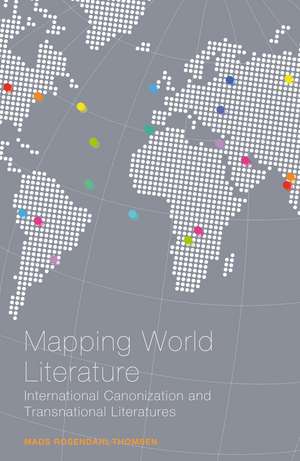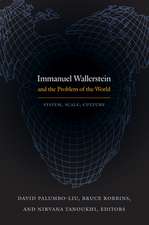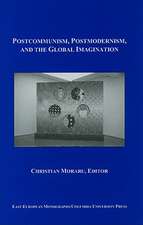Mapping World Literature: International Canonization and Transnational Literatures: Continuum Literary Studies
Autor Dr Mads Rosendahl Thomsenen Limba Engleză Paperback – 20 iun 2008
| Toate formatele și edițiile | Preț | Express |
|---|---|---|
| Paperback (1) | 262.25 lei 6-8 săpt. | |
| Bloomsbury Publishing – 20 iun 2008 | 262.25 lei 6-8 săpt. | |
| Hardback (1) | 888.65 lei 6-8 săpt. | |
| Bloomsbury Publishing – 20 iun 2008 | 888.65 lei 6-8 săpt. |
Din seria Continuum Literary Studies
- 31%
 Preț: 889.23 lei
Preț: 889.23 lei -
 Preț: 257.03 lei
Preț: 257.03 lei - 23%
 Preț: 255.84 lei
Preț: 255.84 lei - 30%
 Preț: 773.65 lei
Preț: 773.65 lei - 23%
 Preț: 255.76 lei
Preț: 255.76 lei - 22%
 Preț: 889.49 lei
Preț: 889.49 lei - 22%
 Preț: 773.39 lei
Preț: 773.39 lei - 22%
 Preț: 889.49 lei
Preț: 889.49 lei - 13%
 Preț: 256.20 lei
Preț: 256.20 lei - 23%
 Preț: 255.76 lei
Preț: 255.76 lei - 31%
 Preț: 891.51 lei
Preț: 891.51 lei - 22%
 Preț: 889.55 lei
Preț: 889.55 lei - 31%
 Preț: 889.49 lei
Preț: 889.49 lei - 22%
 Preț: 772.65 lei
Preț: 772.65 lei - 22%
 Preț: 889.15 lei
Preț: 889.15 lei - 14%
 Preț: 771.84 lei
Preț: 771.84 lei - 22%
 Preț: 888.50 lei
Preț: 888.50 lei - 22%
 Preț: 772.98 lei
Preț: 772.98 lei - 30%
 Preț: 595.82 lei
Preț: 595.82 lei - 13%
 Preț: 258.59 lei
Preț: 258.59 lei - 22%
 Preț: 889.88 lei
Preț: 889.88 lei - 22%
 Preț: 256.29 lei
Preț: 256.29 lei - 14%
 Preț: 652.81 lei
Preț: 652.81 lei - 31%
 Preț: 889.49 lei
Preț: 889.49 lei - 23%
 Preț: 255.76 lei
Preț: 255.76 lei - 14%
 Preț: 772.17 lei
Preț: 772.17 lei - 22%
 Preț: 888.81 lei
Preț: 888.81 lei - 31%
 Preț: 771.59 lei
Preț: 771.59 lei - 22%
 Preț: 898.95 lei
Preț: 898.95 lei - 23%
 Preț: 256.02 lei
Preț: 256.02 lei - 31%
 Preț: 889.88 lei
Preț: 889.88 lei - 22%
 Preț: 256.59 lei
Preț: 256.59 lei - 22%
 Preț: 886.21 lei
Preț: 886.21 lei - 31%
 Preț: 772.58 lei
Preț: 772.58 lei - 31%
 Preț: 889.08 lei
Preț: 889.08 lei - 30%
 Preț: 774.46 lei
Preț: 774.46 lei - 31%
 Preț: 889.97 lei
Preț: 889.97 lei - 23%
 Preț: 254.84 lei
Preț: 254.84 lei - 28%
 Preț: 373.89 lei
Preț: 373.89 lei - 30%
 Preț: 774.20 lei
Preț: 774.20 lei - 31%
 Preț: 888.50 lei
Preț: 888.50 lei - 22%
 Preț: 889.63 lei
Preț: 889.63 lei - 31%
 Preț: 890.14 lei
Preț: 890.14 lei - 22%
 Preț: 888.50 lei
Preț: 888.50 lei - 22%
 Preț: 888.65 lei
Preț: 888.65 lei
Preț: 262.25 lei
Preț vechi: 338.71 lei
-23% Nou
Puncte Express: 393
Preț estimativ în valută:
50.18€ • 53.66$ • 41.84£
50.18€ • 53.66$ • 41.84£
Carte tipărită la comandă
Livrare economică 17 aprilie-01 mai
Preluare comenzi: 021 569.72.76
Specificații
ISBN-13: 9781441173546
ISBN-10: 1441173544
Pagini: 192
Dimensiuni: 156 x 234 x 10 mm
Greutate: 0.27 kg
Editura: Bloomsbury Publishing
Colecția Continuum
Seria Continuum Literary Studies
Locul publicării:London, United Kingdom
ISBN-10: 1441173544
Pagini: 192
Dimensiuni: 156 x 234 x 10 mm
Greutate: 0.27 kg
Editura: Bloomsbury Publishing
Colecția Continuum
Seria Continuum Literary Studies
Locul publicării:London, United Kingdom
Caracteristici
Describes why and how literary works become part of the literary canon in different cultures.
Notă biografică
Mads Rosendahl Thomsen is Professor with Special Responsibilities in Comparative Literature at Aarhus University, Denmark.
Cuprins
AcknowledgementsIntroduction 1. World Literature: History, concept, paradigm 2. Shifting focal points in the international canon3. Migrant writers and cosmopolitan culture4. Ethics and aesthetics in traumatic literatureConclusion: Constellations as facts and experimentsNotes ReferencesAppendix: World Literature by Georg BrandesIndex
Recenzii
"Rosendahl Thomsen's book offers us, for the first time, a both comprehensive and systematic overview of the history, and of the different phenomena and the semantic layers of 'World Literature' today. This would already make his work truly important. But Thomsen goes one decisive step further: he not only points to the traumatic conditions that, in addition to the process of 'globalization', have permeated and founded the experience of 'World Literature'; he also proposes a new concept of literary 'constellations' that has the capacity to trigger and to orient future empirical research. Altogether, this is an amazing début by a young Danish scholar within the English-speaking scene of Literary Criticism and Literary Theory."Professor Hans Ulrich Gumbrecht, Albert Guérard Professor in Literature, Stanford University, USA
"This wide-ranging, learned, and ambitious study makes an important contribution to current debates on the concept of world literature. Thomsen helps us better understand the formation and circulation of literature in a globalizing world, through his compelling concept of literary constellations that link works at a level between the individual and the national. Set within a comprehensive and nuanced view of existing scholarship, and illuminated with an impressive variety of literary examples, Thomsen's study is sure to have wide appeal both to students and teachers of comparative and world literature. It will be a necessary addition to every university library and to the personal library of everyone interested in world literature - and in the creation of contemporary literature generally."Professor David Damrosch, Department of English and Comparative Literature, Columbia University, USA
Mention -Chronicle of Higher Education, December 19, 2008
Mention -Book News, February 2009
"One urgent literary debate of the first decade of the 21st century has been that surrounding "world literature": How is it to be defined and constituted? What will be its inevitably changing canon? What modes of interpretation are most appropriate to it? Thomsen (Univ. of Aarhus, Denmark) discusses the "contested paradigms" that structure this debate within various literary disciplines. For example, scholars of comparative literature have been seeking to shed its Eurocentrism and rejuvenate it without turning their backs the achievements of Western writers; those interested in postcolonial literature have had to confront the dilemma of its status as a transnational migrant literature more dependent on the major languages of Europe than on the national literatures of former colonies. Drawing on the work of David Damrosch (What Is World Literature?, 2003), important essays and books by Franco Moretti and Gayatri Chakravorty Spivak, and Christopher Prendergast's edited volume Debating World Literature (2004) and informed by changes in media and culture, this volume ingeniously links national and transnational literatures and global culture while assembling a useful list of formal and thematic elements that will lead readers to engage with old and new texts in new constellations and ways. Summing Up: Highly recommended. Lower-division undergraduates through faculty."K. Tölölyan, CHOICE, April 2009
"Rosendahl Thomsen's Mapping World Literature is an important contribution to our process of remapping... Thomsen's map has room for "major" and "minor" literatures alike and develops new coordinates that other worldly mapmakers will want to employ." David Damrosch, Comparative Literature Studies
'Mapping World Literature provides a particularly innovative approach to the field...[Thomsen's] concept of the 'constellation' provides a model of reading that permits proximity to individual texts, whilst ensuring acknowledgement of the challenges of the potentially global scale of world literature...'
Reviewed in Routledge ABES
... wide-ranging and readable, and will undoubtedly be of value as a starting point for scholars interested in the field. Thomsen's underlying thinking is progressive and pragmatic, leading to ideas which highlight the substantial potential of a reconfigured field of world literary studies.
"Thomsen's value is to inspire thought about how literature is taught in relation to departments which owe an allegiance to a national literature, and to think about the status of 'world literature." Jeremy Tambling, MLR 104.3 2009
"In this important book, Mads Rosendahl Thomsen innovatively applies the concept of literary constellations to trace revealing patterns within world literature, with special relevance to present-day cultural globalization. ... Overall, the book is thoroughly thought-provoking in its international perspective on literature, also reflected in the impressive range of its bibliography and index, while the author's emphasis on the construction of a methology opens up promising avenues for future research." Natasha Grigorian, Journal of European Studies
"Thomsen's book methodically reviews the lineage of World Literature as both a concept and label and succeeds in being detailed without becoming hindered by the myriad dichotomies which typify the term. The scope of this undertaking is ambitious and the result is an opportunity for scholars of comparative literature to consider new types of literary and cultural constellations encompassing national, tranlational and global movements." Mark Sullivan, The Comparatist
"Mads Rosendahl Thomsen's book is an impressive survey of the growth of a new field of study, known as world literature. He takes as his starting point the impossibility of ever comprehending the whole of world literature, and sets out instead to trace paths through the complex web of global writing. The book is divided intelligently into four chapters, each of which surveys the field from a particular perspective."Susan Bassnett, English Studies
Reviewed in English Studies, Vol. 91, no. 5, (Netherlands) 'A contribution to world literature'
"This volume ingeniously links national and transnational literatures and global culture while assembling a useful list of formal and thematic elements that will lead readers to engage with old and new texts in new constellations and ways." - Choice
"This wide-ranging, learned, and ambitious study makes an important contribution to current debates on the concept of world literature. Thomsen helps us better understand the formation and circulation of literature in a globalizing world, through his compelling concept of literary constellations that link works at a level between the individual and the national. Set within a comprehensive and nuanced view of existing scholarship, and illuminated with an impressive variety of literary examples, Thomsen's study is sure to have wide appeal both to students and teachers of comparative and world literature. It will be a necessary addition to every university library and to the personal library of everyone interested in world literature - and in the creation of contemporary literature generally."Professor David Damrosch, Department of English and Comparative Literature, Columbia University, USA
Mention -Chronicle of Higher Education, December 19, 2008
Mention -Book News, February 2009
"One urgent literary debate of the first decade of the 21st century has been that surrounding "world literature": How is it to be defined and constituted? What will be its inevitably changing canon? What modes of interpretation are most appropriate to it? Thomsen (Univ. of Aarhus, Denmark) discusses the "contested paradigms" that structure this debate within various literary disciplines. For example, scholars of comparative literature have been seeking to shed its Eurocentrism and rejuvenate it without turning their backs the achievements of Western writers; those interested in postcolonial literature have had to confront the dilemma of its status as a transnational migrant literature more dependent on the major languages of Europe than on the national literatures of former colonies. Drawing on the work of David Damrosch (What Is World Literature?, 2003), important essays and books by Franco Moretti and Gayatri Chakravorty Spivak, and Christopher Prendergast's edited volume Debating World Literature (2004) and informed by changes in media and culture, this volume ingeniously links national and transnational literatures and global culture while assembling a useful list of formal and thematic elements that will lead readers to engage with old and new texts in new constellations and ways. Summing Up: Highly recommended. Lower-division undergraduates through faculty."K. Tölölyan, CHOICE, April 2009
"Rosendahl Thomsen's Mapping World Literature is an important contribution to our process of remapping... Thomsen's map has room for "major" and "minor" literatures alike and develops new coordinates that other worldly mapmakers will want to employ." David Damrosch, Comparative Literature Studies
'Mapping World Literature provides a particularly innovative approach to the field...[Thomsen's] concept of the 'constellation' provides a model of reading that permits proximity to individual texts, whilst ensuring acknowledgement of the challenges of the potentially global scale of world literature...'
Reviewed in Routledge ABES
... wide-ranging and readable, and will undoubtedly be of value as a starting point for scholars interested in the field. Thomsen's underlying thinking is progressive and pragmatic, leading to ideas which highlight the substantial potential of a reconfigured field of world literary studies.
"Thomsen's value is to inspire thought about how literature is taught in relation to departments which owe an allegiance to a national literature, and to think about the status of 'world literature." Jeremy Tambling, MLR 104.3 2009
"In this important book, Mads Rosendahl Thomsen innovatively applies the concept of literary constellations to trace revealing patterns within world literature, with special relevance to present-day cultural globalization. ... Overall, the book is thoroughly thought-provoking in its international perspective on literature, also reflected in the impressive range of its bibliography and index, while the author's emphasis on the construction of a methology opens up promising avenues for future research." Natasha Grigorian, Journal of European Studies
"Thomsen's book methodically reviews the lineage of World Literature as both a concept and label and succeeds in being detailed without becoming hindered by the myriad dichotomies which typify the term. The scope of this undertaking is ambitious and the result is an opportunity for scholars of comparative literature to consider new types of literary and cultural constellations encompassing national, tranlational and global movements." Mark Sullivan, The Comparatist
"Mads Rosendahl Thomsen's book is an impressive survey of the growth of a new field of study, known as world literature. He takes as his starting point the impossibility of ever comprehending the whole of world literature, and sets out instead to trace paths through the complex web of global writing. The book is divided intelligently into four chapters, each of which surveys the field from a particular perspective."Susan Bassnett, English Studies
Reviewed in English Studies, Vol. 91, no. 5, (Netherlands) 'A contribution to world literature'
"This volume ingeniously links national and transnational literatures and global culture while assembling a useful list of formal and thematic elements that will lead readers to engage with old and new texts in new constellations and ways." - Choice






















